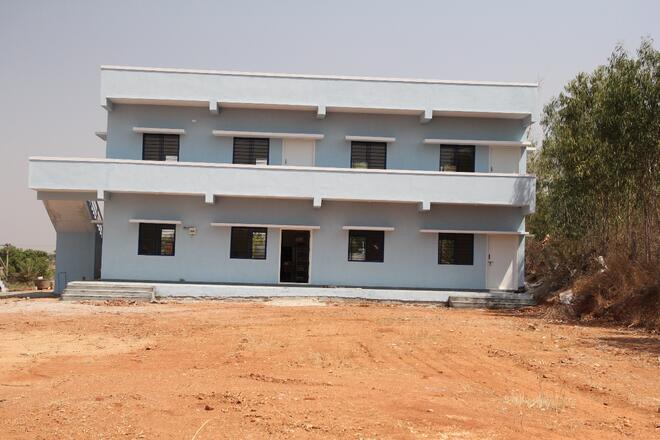Features
Workshop on right based approach to social change in Kolar and Davangere – Date will be announced shortly
Alex Tuscano
“Justice, peace, freedom and human dignity are the core principles that the Palestinians long for. The occupation of the Palestine lands by Israel using its military might should end.”
REPORT April 2019 to March 2020
Since 1981 Praxis has travelled a long distance. Praxis has been organizing people belonging to the marginal farmers’ class, daliths, women, fisher people and working with children to ensure quality education and child right. Praxis has seen many ups and downs in its life. But the long journey has been very happy and encouraging experience. The struggles of the people have brought them huge gains, freedom from bonded labour, indebtedness and some relief from the oppression of the upper class and upper caste.
We were supported by both foreign and Indian donors for most of the time. The external funding had made our work free of tension. I would like to emphasize that we have been enjoying sufficient freedom to plan and shape our activities according to our vision and objectives. We always remain grateful to Novib (Netherland Organization for Development Cooperation), Swiss Catholic Lenten Fund, The French Foundation, ITC, French Red Cross and Action Aid International for their support.
But we had always seen the external funding as a weakness of our organization. Apart from coming under pressure from the donor organization there were always uncertainties about the future. There was no scope within the funding arrangement to build a financial base to gain certain amount of stability and permanency for the organization.
Children's Education Programme:
While we were rudderless after the funding was over our sister organization, Research and Training Centre for Rural Development kept us alive and searching. With their resources we were able to start a formal school for the children of the poor from remote villages in Karnataka. Children’s education had been one of our core projects. From 1983 we have been working on children’s supplementary education programme. Our goal was to ensure that the children from the poor and dalith community join the schools (enrollment). We were coaching children outside the school hours to ensure that their learning standard match with their class. This ensured retention of the children in the schools. Otherwise most of these children would drop out because they could not cope up with the studies and more importantly because they could not afford books and uniform. Under the supplementary education programme we supported the children with books and uniform. As time went on the government started providing books, uniform and mid-day meals. The mid-day meals became the main source of nutrition for the children.
After several years of experience with the supplementary education programme we were confronted with a new challenge. The children from the poor, after completing successfully their SSLC, still could not proceed further. Their weakness was they were illiterate as far as English language was concerned. This added to their weakness of being studying in rural schools.
This made us realize that we should start our own school with innovative approach and orientation. We had access to the land in Somasagar owned by our member. We constructed eight class rooms and a small hostel. On 8th May 2018 we inaugurated the school building and started the classes for Junior KG and senior KG from June 2019. We did not want to give completely free education. We were charging very low fees. This attracted a lot of people to our school. We have maintained a high standard of teaching and learning. We have 60 children in the Junior KG and 30 children in the senior KG.
We had barely completed the first year of school the lock down came and till today the schools are not open.


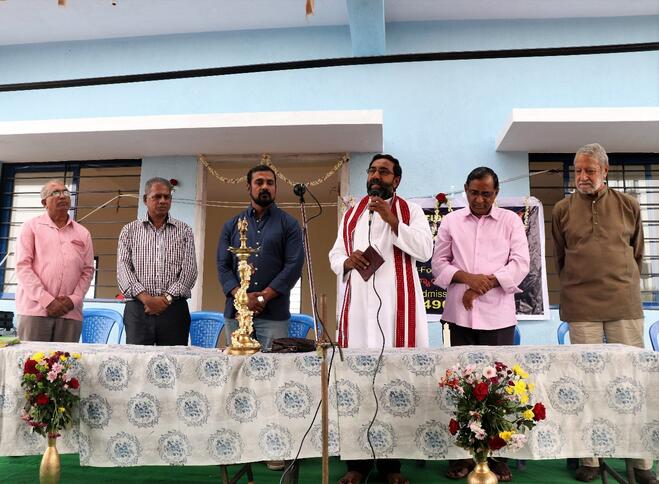
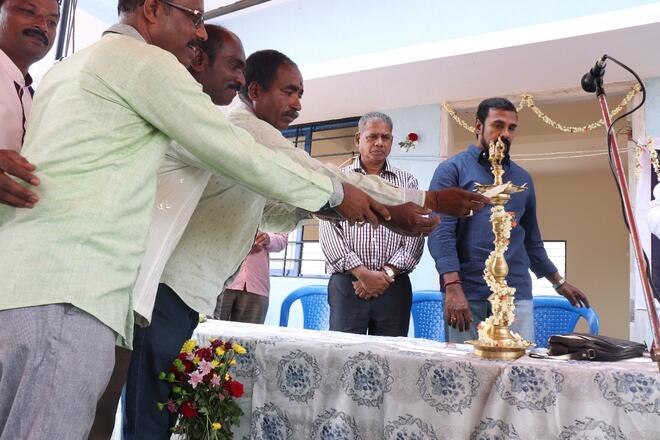
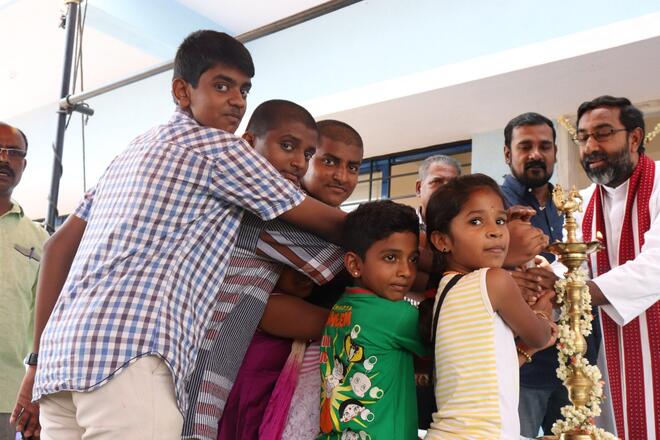
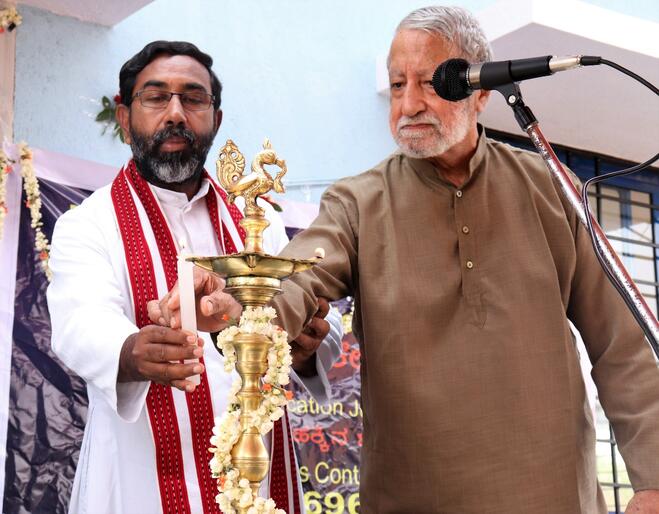
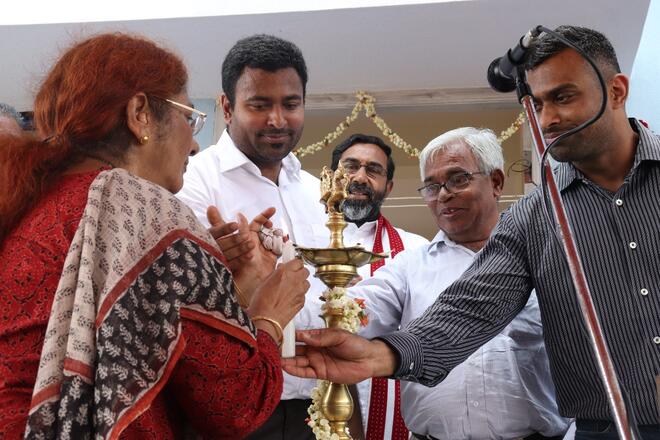
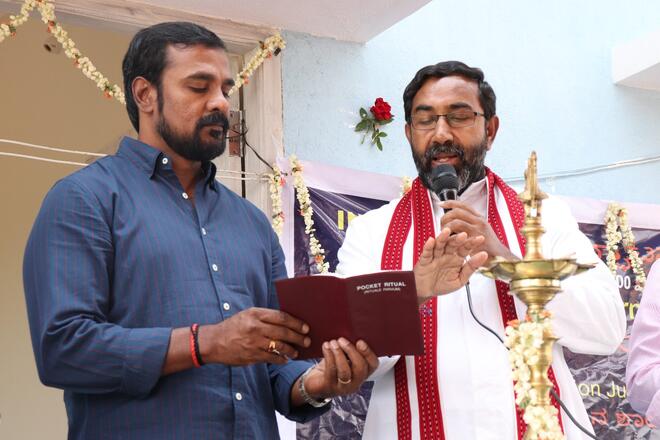
PRAXIS LEARNING CENTRE
CRITIQUE ON EDUCATION:
PRAXIS LEARNING CENTRE'S PHILOSOPHY
PRAXIS LEARNING CENTRE OFFERS:
PRAXIS LEARNING CENTRE - VISION AND MISSION
Vision
Another world is possible.
There is a world beyond capitalism; beyond private profit to social good; beyond exploitation to emancipation; beyond competition to cooperation - to the world working together, beyond war to peace.
From each one according to his/her ability to each one according to his/her needs.
The new source of power is not money in the hands of a few, but information in the hands of many (John Naisbitt).
Mission
PRAXIS LEARNING CENTRE - BLUE VALLEY
